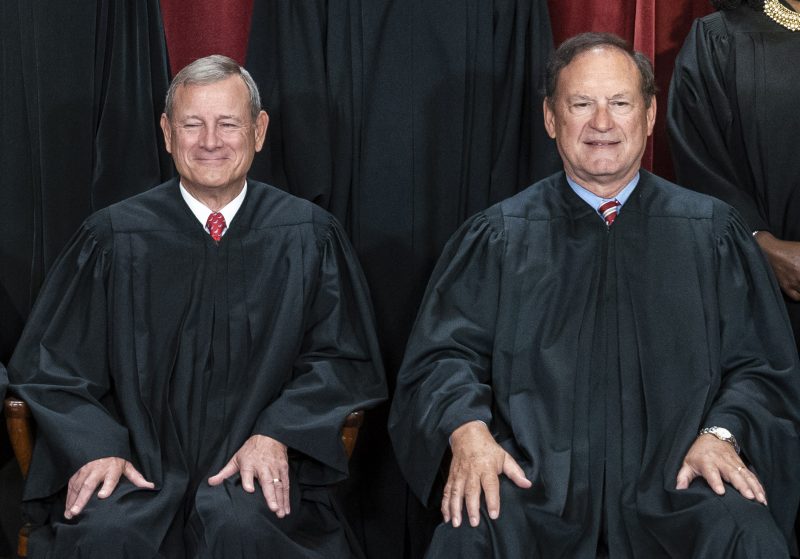
Democrat’s Urgent Call: Chief Justice Roberts Urged to Address Supreme Court Ethics
Democrats Press Chief Justice Roberts to Address Ethics at Supreme Court
The issue of ethics within the judiciary is a crucial one that directly impacts the trust and integrity of the legal system. Recent concerns raised by Democratic lawmakers about the ethics of Chief Justice John Roberts and the Supreme Court have once again highlighted the need for transparency and accountability within the highest levels of the judicial branch.
One of the primary ethical challenges facing Chief Justice Roberts and the Supreme Court is the question of judicial recusals. Democrats have specifically called into question Chief Justice Roberts’ failure to recuse himself from cases involving financial conflicts of interest, particularly those involving mutual funds that he holds significant financial interests in. The lack of clear guidelines and transparency regarding recusal decisions undermines the public’s perception of the Court’s impartiality and integrity.
Furthermore, Democratic lawmakers have also criticized Chief Justice Roberts for his involvement in conservative political activities, including speaking engagements at events hosted by conservative organizations. While justices are not bound by the same code of conduct as lower federal court judges, engaging in political activities can raise concerns about impartiality and independence.
In response to these concerns, Democrats are calling on Chief Justice Roberts to address these ethical issues and establish a clear framework for recusal decisions. They argue that increased transparency and accountability are essential to upholding the credibility of the Supreme Court and maintaining public trust in the judiciary.
Moreover, the issue of ethics at the Supreme Court extends beyond individual justices to encompass broader institutional challenges. The lack of diversity on the Court, both in terms of demographics and professional backgrounds, raises questions about the Court’s ability to represent a diverse range of perspectives and experiences. Ensuring a more diverse and inclusive judiciary is essential to fostering public confidence in the Court’s decisions and maintaining its legitimacy.
Ultimately, the ethical challenges facing the Supreme Court underscore the importance of upholding the highest standards of integrity and impartiality within the judiciary. Chief Justice Roberts and his fellow justices must address these concerns and take concrete steps to safeguard the Court’s reputation and independence. By promoting transparency, accountability, and diversity, the Supreme Court can fulfill its vital role as a guardian of justice and the rule of law in American society.
